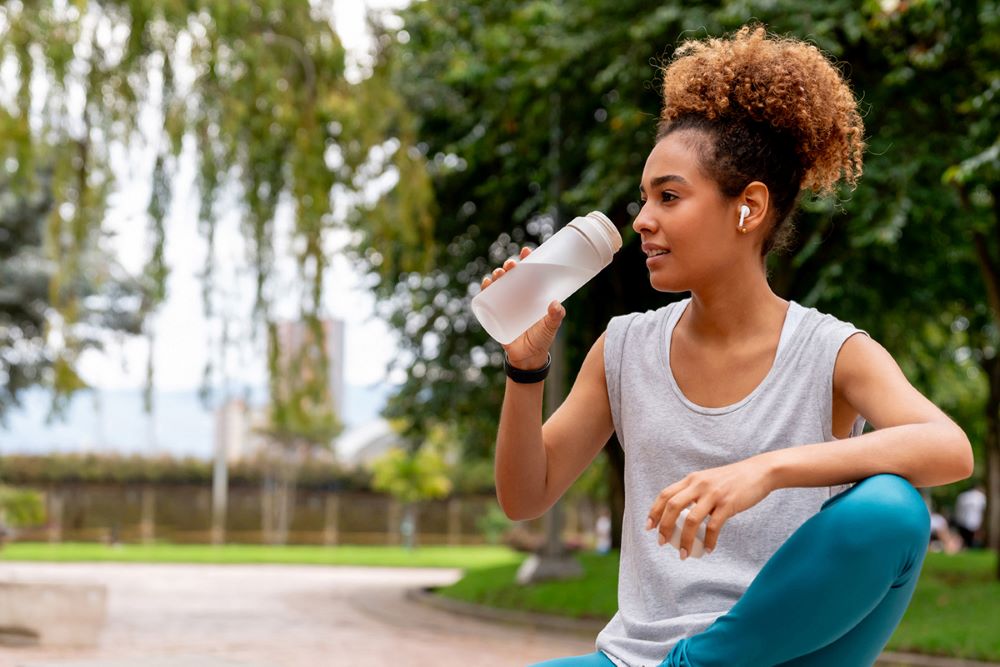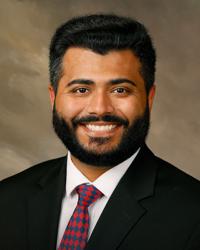
Mubeen Mandani, D.O., of the Northside Hospital Diagnostic Clinic in Buford, recently answered questions about hydration during the summer heat.
What’s the best approach for staying hydrated if someone will be out in the heat?
You should always be prepared and listen to your body. Take a water bottle with you and listen to your body. We of course want to avoid dehydration, but we also do not want to drink more water than needed as it can affect your electrolytes (mainly sodium). Use the drink-to-thirst strategy. This means that you drink water (1-2 cups) each time you feel thirsty. Scheduled drinking such as drinking every about 30-60 minutes. Drinking before you go out in the sun may be beneficial if you are going to be out for multiple hours or if you are planning to exercise at a high intensity. For the average healthy adult, drinking to thirst is a safe and simple strategy. But if you’re going to be outside for hours, sweating a lot, doing a high-intensity workout, or at risk of not recognizing thirst (children or the elderly) it’s wise to start hydrating before you feel thirsty and to sip regularly. Like most things in medicine, one size doesn’t fit all.
Is it best for someone to drink a lot of water before going out? How much?
Drinking a lot of water before going out should only occur if you are planning of being out for multiple hours at a time or at higher risk for not recognizing signs of thirst (children and the elderly) such as dry mouth/lips, thirst, discomfort, headaches, dizziness and/or fatigue. If you fit into this category, then it is reasonable to drink around 5-10 mL/kg of body weight of water around 2-4 hours prior to activity. You can also use your urine color to guide this as it should be pale yellow. If the urine remains dark after the initial hydration period, then an additional 3-5 mL/kg can be consumed 1-2 hours before going out.
Do the amounts a person need vary based on age/sex/weight?
The amount of hydration a person needs definitely varies by age and weight. As a general rule of thumb, men should aim for 4 liters a day and women should aim for 3 liters a day, with increased water intake based on thirst and the other factors mentioned above. This includes all fluid intake, not just water. The elderly are more prone to dehydration as they can lose the ability to recognize signs of dehydration, so trying to aim for 3-4 liters of fluid a day is even more important for them.
What are the signs a person needs to drink immediately?
As mentioned above, dry mouth/lips, thirst, discomfort, headaches, dizziness, fatigue are very common signs of dehydration. Decreased urine output, dark urine and an increased heart rate are also signs of dehydration.
What drinks should be considered first? Which should be avoided or only consumed in moderation?
The best drink is of course water. Oral rehydration beverages like Pedialyte are also good. You should avoid alcohol or high-caffeine beverages for hydration as they can cause you to urinate more and increase your core body temperature. Things with lots of sugar in them should be consumed in moderation for hydration as the sugar can also cause increased urination which can then lead to dehydration.
The “rule” most people know is eight glasses of water a day. Is that accurate?
The eight glasses of water a day rule is a good start, but it is not backed by strong evidence. As discussed above, we want to aim for 3-4 liters of total water a day. (This includes fluids from food as well.) I would recommend to aim for the 3-4 liters and drink water on a drink-to-thirst basis, i.e. drink when you feel thirsty.
Book an appointment online with a Northside provider.

